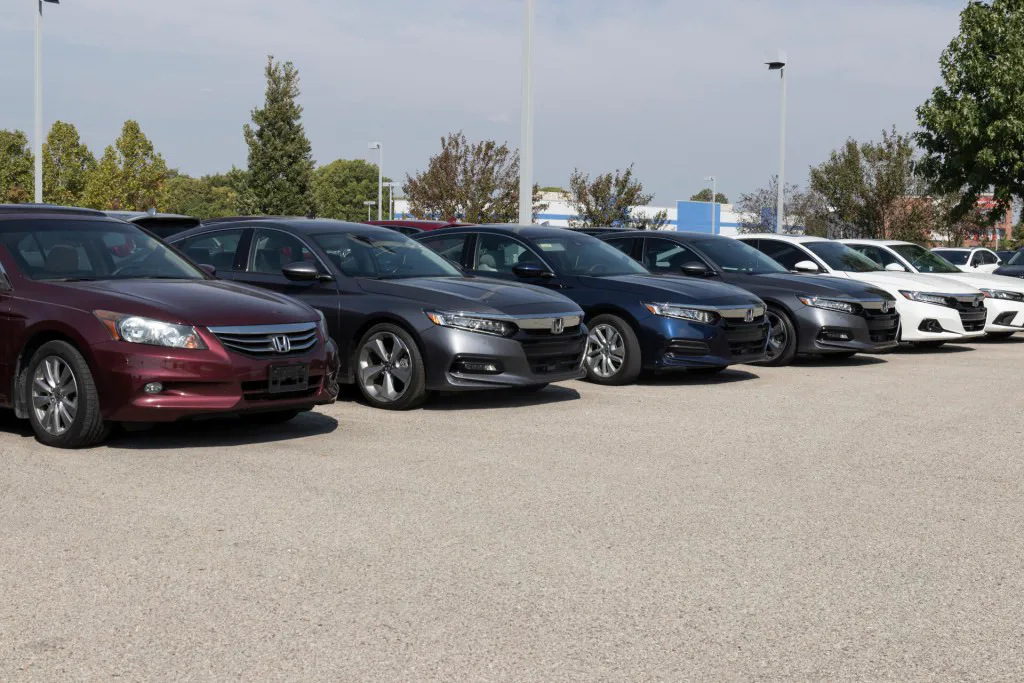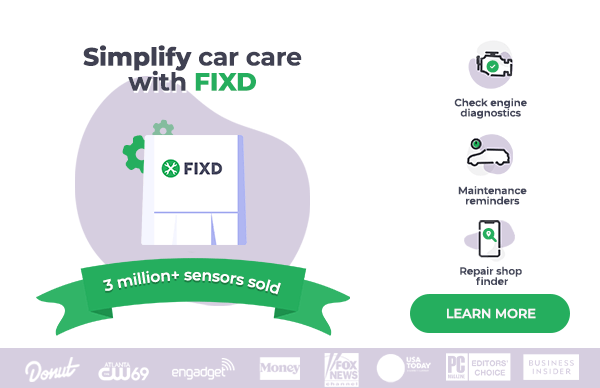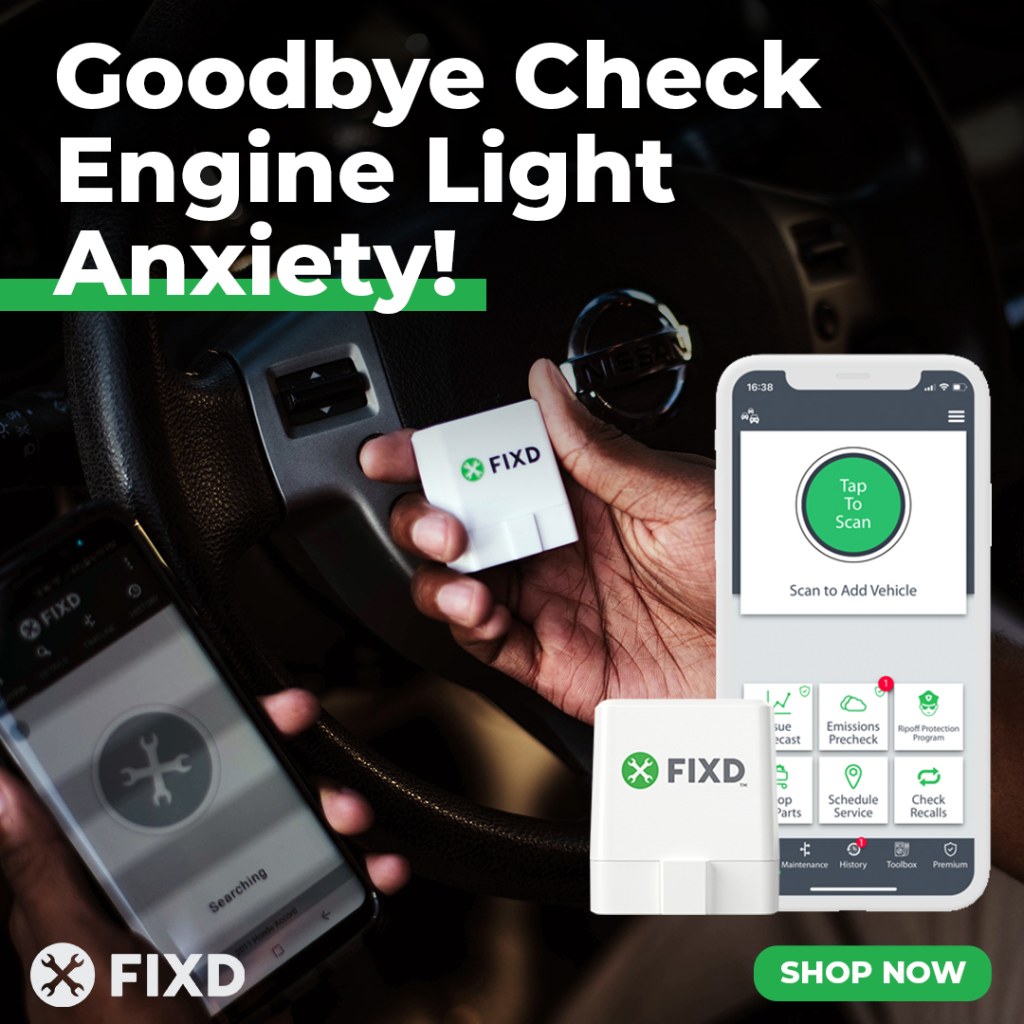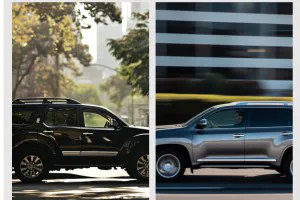While not the first Honda automobile to hit American roads, the Accord helped cement the automaker’s reputation for value and dependability. It’s a car that has achieved numerous distinctions, including being named a Car and Driver 10Best for a record 37 times. The Honda Accord also became the first best-selling car in the U.S. to wear an import brand badge (although most Accord sedans sold in America since 1982 come from Honda’s factory in Marysville, Ohio). As of 2021, Honda has sold more than 17 million Accords.
But, despite this rousing success, Accords are not flawless. Some model years are worse than others. We sifted through an expensive gathering of information to come up with the best and worst years for the Honda Accord. Something to consider if you already own an Accord or are shopping for a used one.
The assessment looked at data from thousands of FIXD car scanners currently in use in Honda Accords, hundreds of surveys from Accord owners, and public sources covering fuel economy, safety testing, and other key metrics.
Check out an overview of the results, followed by more detailed information.
| Best Years | Why? | Worst Years | Why? |
| 2004-2007 |
Respectable reliability scores for an older car |
2001-2003 |
Low reliability scores and high likelihood of expensive drivetrain repairs |
| 2010-2011 |
Solid reliability scores and reduced chance for pricey repairs |
2008-2009 |
First years of 8th generation with higher potential for engine and electrical issues |
| 2014-2017 |
Great reliability scores, with expenses centered on maintenance, not repair |
2012-2013 |
First year of 9th generation (2013), and above average chance of expensive engine repairs |
| 2019-2021 |
Impressive MPG and crash test performance, no major issues reported (so far) |
2018 |
First year of 10th generation, low engine reliability scores |
If you’d like to see an in depth comparison of this vehicles competitors, check out:
Honda Accord Engine Reliability Score, Safety Ratings & MPG Year-by-Year
Before getting into the best and worst Honda Accord model years, let’s review some overarching dependability areas. These topics reflect engine reliability, crash tests, and fuel economy.
Does the Honda Accord generally perform better than average for engine reliability?
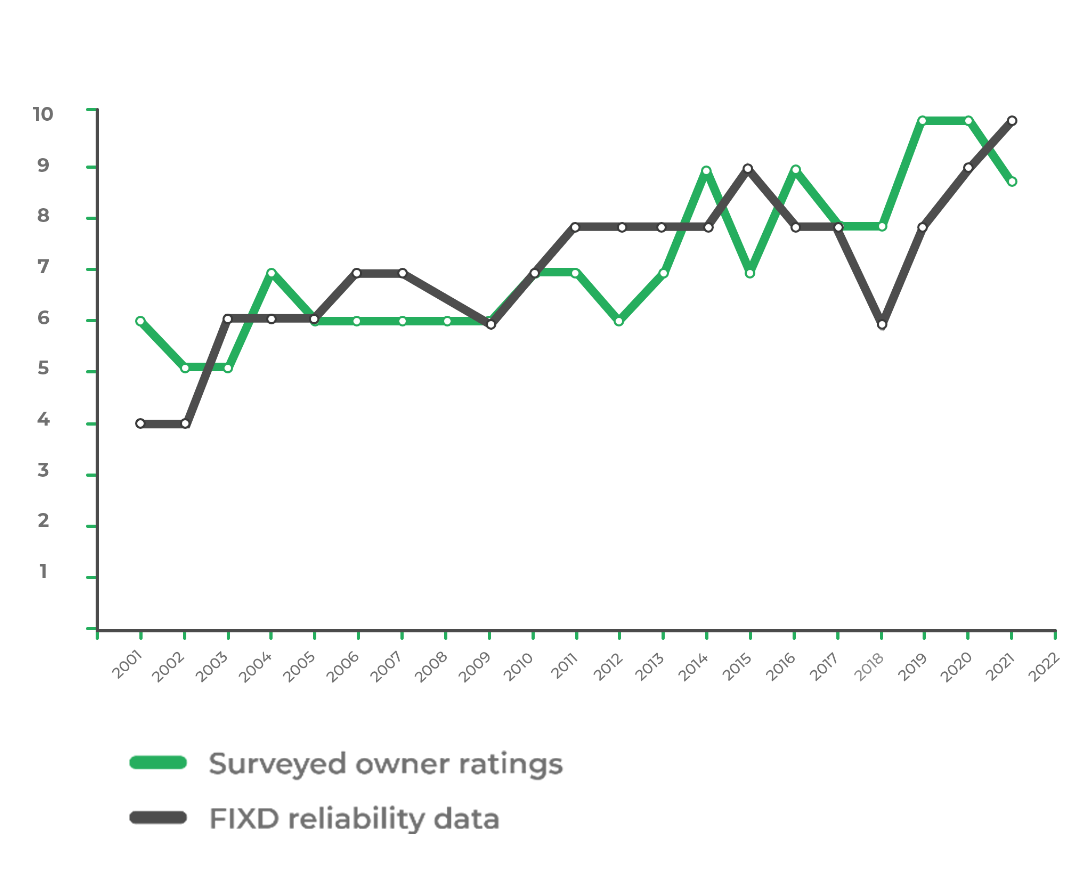
The assessment of Honda Accord engine reliability comes from two standpoints; what the FIXD app tells us and what Accord owners report.
Overall, Accord engine reliability is better with newer model years. That’s hardly a surprise, but a few exceptions are worth noting. Specifically, owner reports of engine troubles with the 2012 and 2015 Accords, it’s best to pass on these model years.
Further, the FIXD app reveals that the 2018 Accord is prone to engine troubles, which is not good for a relatively new vehicle. It’s an issue that confirms what most car enthusiasts recommend; stay away from the first year of an all-new model. 2018 is the debut year for the tenth-generation Accord.
The FIXD Reliability score is based on Check Engine Light (CEL) frequency. Every time your CEL goes on, a Diagnostic Trouble Code (DTC) is generated. These help the mechanic determine what’s wrong with the engine. If you’re curious, we put together a cheatsheet with the Top 5 DTCs (& what they mean) for Honda Models.
When shopping for a used Honda Accord, it’s essential to remember that not all vehicles are cared for equally. To protect yourself from lemons, take along a FIXD Sensor on your test drive. FIXD connects to a free app on your smartphone to tell you more about the vehicle you’re checking out, including check engine lights and other hidden issues that the owner or dealership may be attempting to hide. Click here to learn more and get FIXD for only $19.99 (regular price $59)!
Does the Honda Accord generally have better-than-average NHTSA safety?
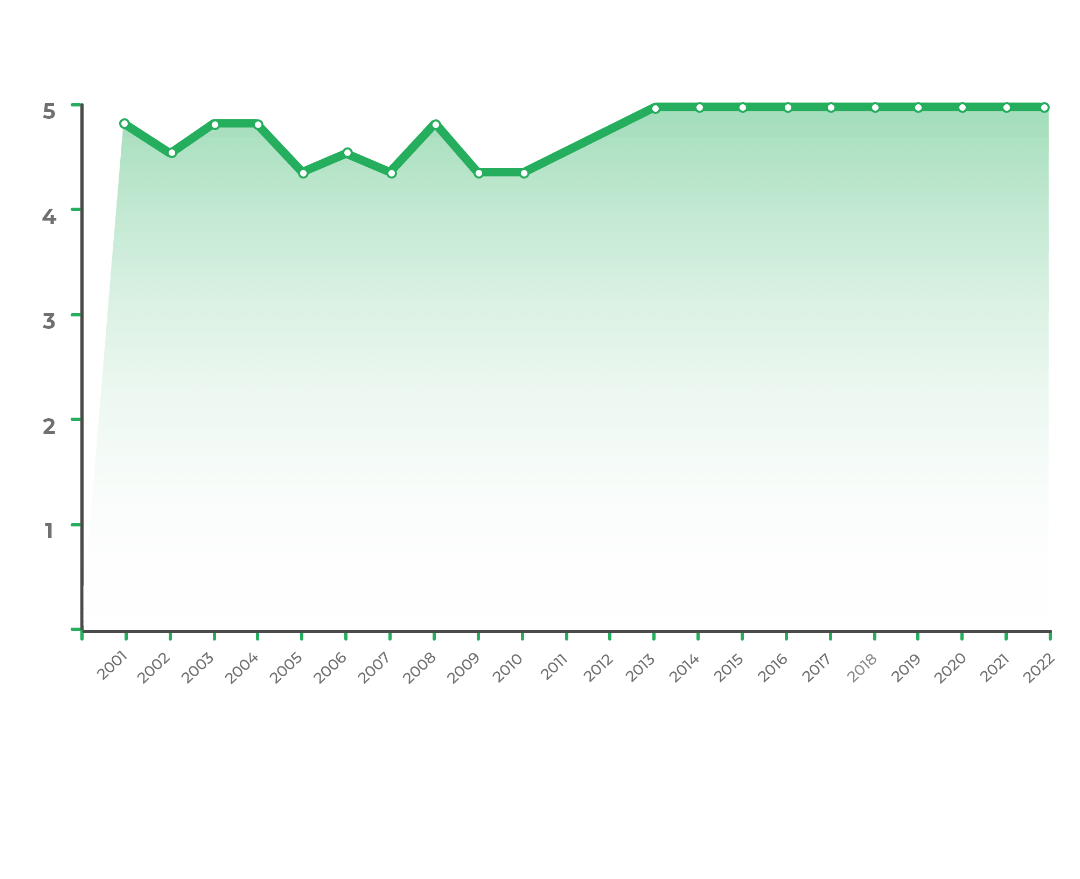
The Honda Accord sedan often serves as a family transporter, so maximizing the car’s crash test scores is smart marketing and good corporate citizenry. Better safety scores also help keep insurance rates low.
Looking at National Highway Transportation Safety Administration (NHTSA) data over the last two decades, the Accord scored no lower than 4.4 (out of 5) as an average safety rating.
Let’s see how the Honda Accord compares to some competitors by analyzing the recent years (2009-2010) with these lower crash test results. Looking at the 2009 and 2010 model years, the Toyota Camry scores a 4.8 (out of 5), besting the Accord in side-impact protection for the driver and rear passengers. The Nissan Altima and Ford Fusion from the same years edged out the Accord with an overall score of 4.6 (also with better results for protecting rear passengers in a side-impact collision).
In a nutshell, newer Accords get top grades in NHTSA safety testing, while some older models are slightly behind the competition.
Does the Honda Accord generally have better than average MPG?
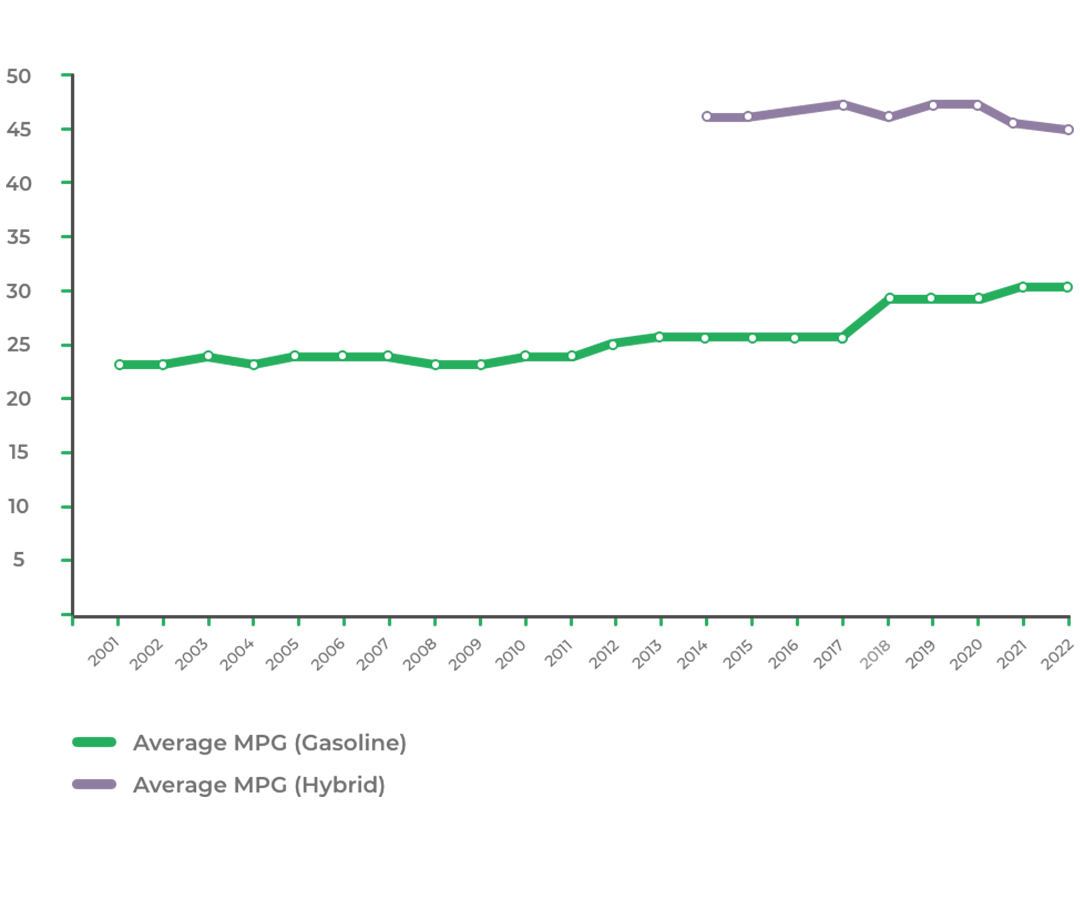
While the Accord delivers solid results in many categories, it’s never gained a reputation as a noteworthy fuel sipper (except for the Accord Hybrid with 45+ mpg); this is especially the case when the Accord grew to a mid-sized vehicle in 1990. In fact, the Accord didn’t offer an average of 25 mpg or better until 2012.
However, the Accord’s average mpg improved significantly (29+ mpg) with the launch of the tenth-generation model for 2018. Nonetheless, information from the U.S. Department of Energy shows newer Accords deliver better fuel economy than the standard light-duty vehicle. For example, the typical 2021 car is rated for an average fuel economy of 25.7 mpg, compared to 30 mpg for a 2021 Accord.
Recalls & Warranties
Recalls of Interest:
Factory Warranties (Years we could find info online):
2003 Honda Accord Warranty: What’s Covered & What’s Not
2004 Honda Accord Warranty: All Coverage & Exceptions
2005 Honda Accord Warranty: All Coverage & Exceptions
2006 Honda Accord Warranty: What’s Covered & What’s Not
2007 Honda Accord Warranty: What’s Covered and What’s Not
2008 Honda Accord Warranty – What’s Covered & What’s Not
2009 Honda Accord Warranty – All Coverage & Extensions
2010 Honda Accord Warranty – All Coverage & Exceptions
2011 Honda Accord Warranty – What’s Covered & What’s Not
2012 Honda Accord Warranty: What’s Covered & What’s Not
2013 Honda Accord Factory Warranty
2014 Honda Accord Warranty – What’s Covered & What’s Not
2015 Honda Accord Warranty – All Coverage & Exceptions
2016 Honda Accord Warranty – What’s Covered & What’s Not
2017 Honda Accord Warranty – Coverage, Exclusions, Extensions
2018 Honda Accord Warranty – What’s Covered & What’s Not
2019 Honda Accord Warranty – All Coverage & Extensions
2020 Honda Accord Warranty – All Coverage & Exceptions
Current Market Value of All Honda Accord Years & Cost Per Year to Repair and Maintain Each
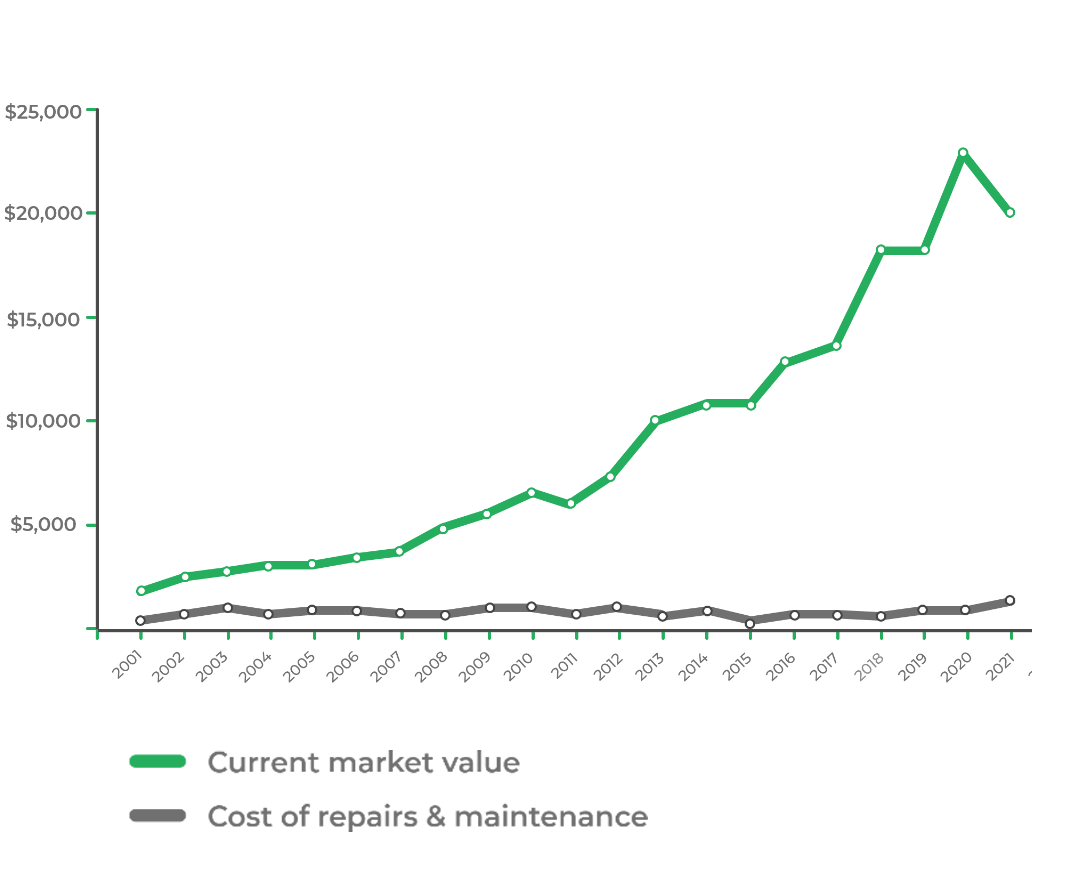
Repair and maintenance costs and market value are impacted by engine reliability. Except for a few model years with above-average maintenance expenses (covered later), the Accord benefits from mostly consistent upkeep costs. Curiously, a slight dip in market value for the 2011 and 2015 Accord doesn’t correspond with any upswing in ownership costs or poor reliability scores. Perhaps, other factors, like competitive vehicles, are causing the slight downturn for these particular Accords.
If you’d like to learn about this vehicle’s past depreciation rate & our projected depreciation rate based on that, check out: Honda Accord | Depreciation Rate & Curve Graphed
Important Features Timeline

1996: Minor exterior updates, including for the Accord Wagon
1997: Honda offers the Special Edition Accord with a sunroof and other standard goodies
1998: A larger sixth-generation appears in sedan and coupe form (no more wagon)
1999: No major changes for the 1999 Accord
2000: Side airbags standard on V6 models and four-cylinder EX trims with leather
2001: A refreshed front end and tail give the Accord a more streamlined look
2002: A mid-spec SE trim appears with standard equipment like ABS and a power driver’s seat
2003: All-new seventh-generation Accord sedan and coupe appear
2004: XM satellite radio joins the Accord equipment roster (standard on leather-trimmed models)
2005: The 255-horsepower Accord Hybrid joins the lineup
2006: Minor exterior updates, the V6 sedan is available with a manual transmission
2007: No major changes except for the addition of the SE V6 trim
2008: A larger eighth-generation Accord lands in Honda showrooms
2009: No major changes for the 2009 Accord
2010: The five-door Accord Crosstour becomes available
2011: A mild exterior refresh, the SE trim rejoins the lineup
2012: Every Accord gets a USB audio connection
2013: Honda introduces the redesigned ninth-generation Accord
2014: Two hybrids, including a plug-in model, join the Accord family
2015: No major changes, top trims get advanced safety tech as standard equipment
2016: Exterior updates including LED taillights, the EX and above get Apple CarPlay/Android Auto
2017: Last year for a six-cylinder Accord and a coupe body style
2018: The tenth-generation Accord debuts as a sedan-only offering
2019: No updates other than the base engine being dropped from the Touring trim
2020: 2020 is a carryover year for the Accord
2021: The front end gets revised and Apple CarPlay/Android Auto is standard on every Accord
2022: There are no changes for the 2022 Accord
The Best Years of the Honda Accord
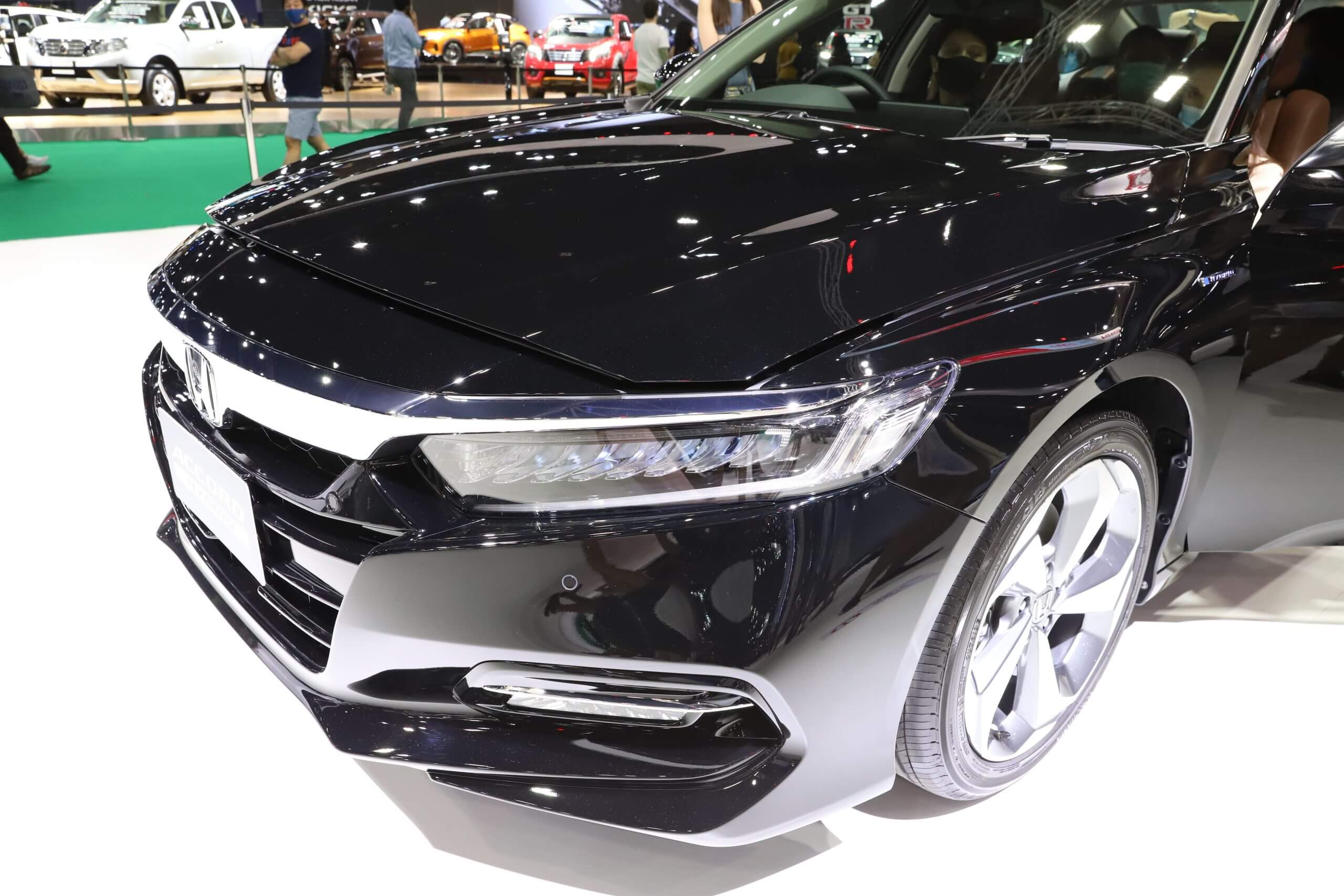
We analyze engine reliability data, crash test scores, owner reports, and fuel economy rankings to identify the top Honda Accord model years. This assessment also includes common diagnostic trouble code (DTC) indicators and a brief review of recall information from the NHTSA.
2004-2007 Honda Accord
FIXD App Engine Reliability: 6-7/10
Owner-Reported Reliability: 6-7/10
KBB Value: $3,912-$4,749
Fuel Economy: 23-24 mpg
Annual Maintenance/Repair: $539-$675
Safety Rating: 4.4-4.8
Let’s be upfront, a 15-year-old (or older) automobile won’t be perfect, but spending big bucks on a car isn’t for everyone. So, if you’re shopping for a wallet-friendly Accord, the 2004-2007 model years are where to start.
Reliability scores fluctuate between 6 and 7 (out of 10), depending on what the FIXD app reports for engine reliability and what the owner surveys reveal.
Based on data from KBB, a shopper for a 2004-2007 Accord should be able to find one with average mileage for around $5,000, which is an acceptable amount these days for anything other than a total clunker.
As we’ve covered, older Accords aren’t the best for fuel economy. Checking out the more economical Honda Civic may be a better approach if this is a priority. However, 23-24 mpg still means you won’t visit a gas station daily.
Repairs are inevitable, and sometimes they can be expensive. In particular, these Accord model years will likely need a new catalytic converter (DTC P0420), which runs $1,538-$2,041 to replace. Other common but less pricey repairs that may pop up include replacing an engine valve (DTC P0300) or heated oxygen sensor (DTC P0139). These issues usually run $300 or less to fix.
Annual upkeep costs will run about $500 to $700, but that’s the price for having an older car. Most of these expenses will involve brakes, but the 2004 Accord has a 53% chance of needing engine repairs over $500 in the course of one year.
According to NHTSA, this group of Accords has a significant number of recalls. However, most involve Takata airbags or non-mechanical matters. In other safety matters, an average crash test score of 4.4 to 4.8 (out of 5) puts these Accords close to or on par with other vehicles in its class.
2010-2011 Honda Accord
FIXD App Engine Reliability: 7-8/10
Owner-Reported Reliability: 7/10
KBB Value: $6,364-$7,004
Fuel Economy: 23-24 mpg
Annual Maintenance/Repair: $636-$807
Safety Rating: 4.4
The 2010 and 2011 model years are the sweet spot for used Accords. Pricing won’t break the bank, and reliability scores (7 to 8) are respectable, if not impressive, for cars with a decade or more of use.
Again, fuel economy isn’t the Accord’s strong suit, but 23-24 mpg won’t leave you totally broke at the pump.
Like its predecessors, a problem with the catalytic converter (DTC P0420) is likely to be the most expensive repair you may encounter with a 2010-2011 Accord (car shopping hint: look for a vehicle that’s already gotten a new catalytic converter). At the same time, be prepared to deal with the spark plugs (DTC P0303, repair costs: $58-$167) or the air cleaner assembly (DTC P0172, repair costs: $50-$150).
If there are any negatives to the 2010-2011 Accords, annual upkeep expenses (around $600 to $800) are on the high side, but no car is perfect. In addition, the 2011 Accord has a 73% chance of a repair costing greater than $500 within a year. Should this happen, it will most likely involve the HVAC system.
NHTSA crash tests give the 2010 Accord an overall safety score of 4.4, which is slightly below competitive cars like the Toyota Camry (which scored a 4.8). While there are several recalls, the majority involve defective airbags.
2014-2017 Honda Accord
FIXD App Engine Reliability: 8-9/10
Owner-Reported Reliability: 7-9/10
KBB Value: $11,678-$14,387
Fuel Economy: 26 mpg
Annual Maintenance/Repair: $303-$735
Safety Rating: 5
Crossing the $10,000 KBB value threshold brings in newer Accords for consideration, all with excellent reliability ratings. The 2014–2017 Accord represents a blend of value and confidence. In particular, car shoppers should note that almost all the Accords in this range scored either an 8 or 9 for reliability (yet, the 2015 model received an owner-reported reliability score of 7).
And while annual ownership expenses can hit $700 or more, these costs usually involve maintenance matters like brakes and tires, not engine or transmission repairs. Data also shows that none of these Accords have a high likelihood (greater than 50%) for expensive (above $500) service work.
Keep in mind that replacing the catalytic converter can still be an issue, even with newer Accord models. Otherwise, frequent repairs for these cars typically center on the mass air flow sensor (DTC P0171, repair costs: $172-$309) and Evaporative Emissions (EVAP) Canister Purge Solenoid/Valve (DTC P0456, repair costs: $50-$150).
Other strong points for the 2014-2017 Accords include better gas mileage (about a 10% improvement) than previous model years and 5 out 5 scoring in NHTSA crash tests.
Recalls are a fact of life for modern cars, and this Accord grouping is no exception. While there are only a few recalls, a few involve the powertrain. Check the NHTSA website or Honda for the recall status of any vehicle.
2019-2021 Honda Accord
FIXD App Engine Reliability: 8-10/10
Owner-Reported Reliability: 8-10/10
KBB Value: $18,995-$23,941
Fuel Economy: 29-30 mpg
Annual Maintenance/Repair: $583-$1,125
Safety Rating: 5
2019–2021 Honda Accords are practically brand new, and some may still qualify for the manufacturer’s warranty. Plus, data shows very few problems, including zero diagnostic trouble codes. Of course, it’s still early. But we’ll offer a thumbs up and a “so far, so good” endorsement.
We take confidence in the perfect (10 out of 10) reliability scores reported by owners for the 2019 and 2020 Accord (with the FIXD app showing a respective 8 and 9 for engine reliability). The 2021 model comes in with a 10 for engine reliability from the FIXD app and an 8 from owners).
There are other things to like, too. Gas mileage approaches or reaches 30 mpg (depending on the model year), and NHTSA reports a perfect 5 out of 5 in crash testing.
Upkeep expenses are likely to involve scheduled maintenance, although the tires and brakes may need replacing if high mileage is present. There is an ongoing fuel pump recall for several newer Honda models, including the Accord.
A Note About The 2022 Honda Accord: There is little data available on the 2022 Honda Accord, so we left this model off our best and worst years list.
The Worst Years of the Honda Accord
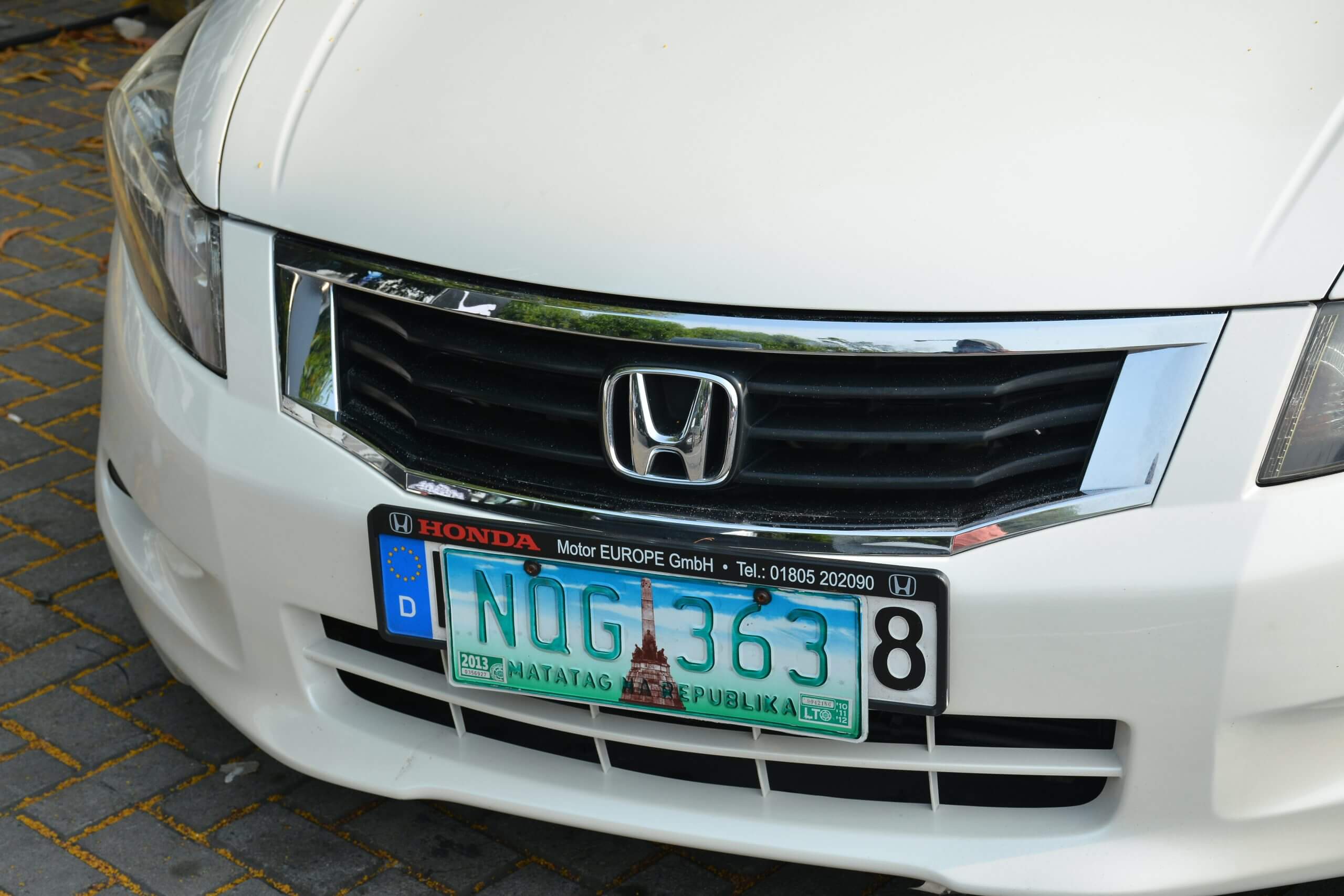
While the Honda Accord gets many approving nods for dependability, a dive into the data uncovers several model years that don’t give off good vibes. This is essential information if you’re shopping for an Accord or already own one.
2001-2003 Honda Accord
FIXD App Engine Reliability: 4-6/10
Owner-Reported Reliability: 5-6/10
KBB Value: $2,130-$3,637
Fuel Economy: 23-24 mpg
Annual Maintenance/Repair: $525-$861
Safety Rating: 4.6-4.8
The truth is, a 20-year-old car from just about any manufacturer is ripe with potential problems; parts wear out, and mileage takes its toll. Unfortunately, Honda Accords from 2001-2003 are no different. To clarify, 2001 and 2002 represent the final years of the sixth-generation Accord, while the 2003 model marks the launch of the seventh-generation edition.
Generally, anytime reliability scores show a 6 or below, shoppers and owners should be cautious. However, other factors (like lower repair and operating costs) can compensate for mediocre reliability results.
However, a score of five or below should cause a car to be removed from the shopping list. And that’s exactly what happened with the 2001 and 2002 Accord. Both model years are ranked at 4 (out of 10) for engine reliability. If that isn’t convincing, then a 2001 Accord having a 57% chance of needing an expensive ($500 or higher) transmission repair should be. It’s not much better (48%) for the 2002 model.
An all-new model (the 2003 Accord) compounds the issues of a two-decade-old vehicle with new-design gremlins. You’ll see a pattern in our list of model years to avoid; stay clear of the first year of any new-generation Honda Accord.
The 2003 Accord gets a barely passing grade of 6 for engine reliability, but owner reporting ranks this Honda at a 5. If that’s not reason enough to move on, then an average of $861 in annual upkeep expenses is. Simply put, this is one of the most expensive 21st-century Honda Accords to own.
Regarding the 2001-2003 Accord, there is plenty of fish in the sea; move on to other model years.
2008-2009 Honda Accord
FIXD App Engine Reliability: 6/10
Owner-Reported Reliability: 6/10
KBB Value: $5,965-$6,287
Fuel Economy: 23 mpg
Annual Maintenance/Repair: $545-$714
Safety Rating: 4.4-4.8
2008 marks the launch of the eighth-generation Honda Accord, and as we’ve said before, the first year of an all-new model is best left to someone else. Engine and owner reliability scores are “meh,” at best. But a 45% likelihood of needing pricey engine repairs is another reason to keep looking.
Potential troubles are further compounded by the significant probability of needing to replace the catalytic converter (DTC P0420), a common issue with older Accords. So, the last thing anyone wants is a car with a mediocre reliability record and the near certainty of having to shell out at least $1,500 for a new catalytic converter.
The 2009 Accord is also deserving of the thumbs-down treatment. It’s not unusual for the second year of the new-generation vehicle to still have teething troubles. For instance, this year, the Accord has the same reliability ratings (6 out of 10) as the 2008 model.
Further, annual repair and maintenance costs are high at $714. And a 74% chance of expensive repairs is not ideal, especially as the data shows this could involve difficult-to-diagnose electrical issues.
Avoid the possible headaches of a 2008 or 2009 Honda Accord. A 2010 or 2011 edition is the way to go for not much more money.
2012-2013 Honda Accord
FIXD App Engine Reliability: 8/10
Owner-Reported Reliability: 6-7/10
KBB Value: $7,682-$10,736
Fuel Economy: 25-26 mpg
Annual Maintenance/Repair: $587-$773
Safety Rating: 5 (2013)
Normally, the final year of a model generation has the kinks worked out, but that’s not the case with the 2012 Accord (the last year of the eighth generation). The FIXD app shows an 8 for engine reliability, but an owner reliability score of 6 is not a good sign. Nor are high annual repair and maintenance costs ($774) or a 64% chance of this Accord needing engine work.
These all add up to red flags that aren’t worth the risk, especially as there are so many other Honda Accord model years to consider.
Falling back on our default advice of not buying the first year of a new-generation car, the 2013 Honda Accord (the start of the ninth generation) is included in our worst years list. Like the 2012 model, this Accord gets an 8 for engine reliability from the FIXD app, but owners aren’t so confident, giving this car a 7.
Further, a 54% chance of engine repairs shouldn’t be present with a ten-year-old car. Plus, annual repair costs approaching $600 aren’t ideal either.
2018 Honda Accord
FIXD App Engine Reliability: 6/10
Owner-Reported Reliability: 8/10
KBB Value: $18,949
Fuel Economy: 29 mpg
Annual Maintenance/Repair: $583
Safety Rating: 5
Honda’s tenth-generation Accord significantly improves performance, sophistication, and fuel economy. However, a look at one particular data point is very troubling. We’re talking about a FIXD app engine reliability score of 6, a warning sign that shouldn’t be present in such a new car.
Meanwhile, owners rate the 2018 Accord as an 8 for reliability, an equally low number for a five-year-old vehicle. It all adds to a simple question, “If the scores are so low now, how will the car be rated in five years?”
In other words, scratch the 2018 Honda Accord off any shopping list.
Frequently Asked Questions: The Best and Worst Years of the Honda Accord
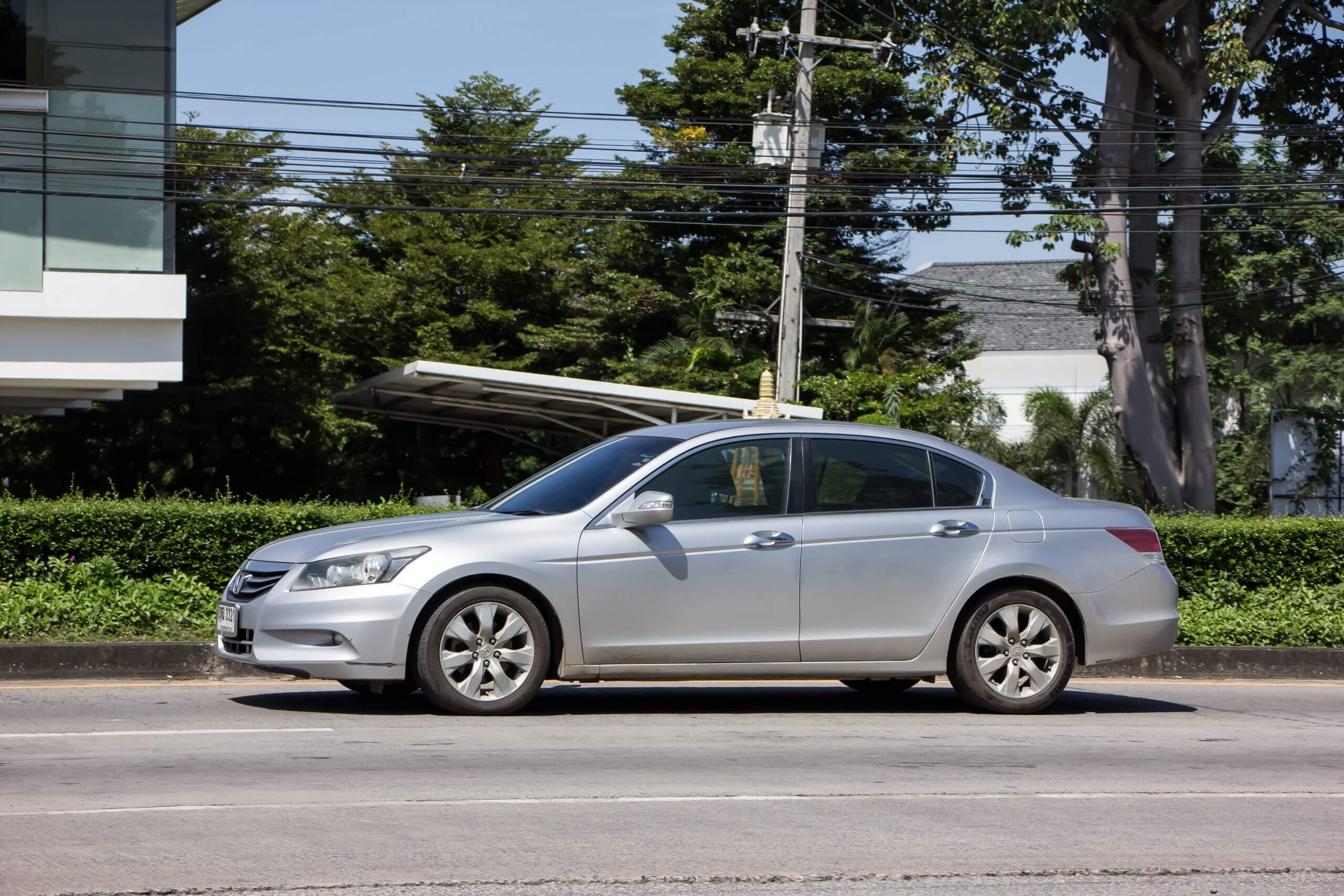
What years of the Honda Accord have engine and/or transmission problems?
Most Accords enjoy an excellent reputation for engine and transmission reliability. However, a few exceptions are important to be aware of. In particular, research shows that the 2003-2004, 2008, and 2012-2013 Accords are prone to engine troubles (with the 2004, 2012, and 2013 editions having a greater than 50% chance of a problem). Transmission troubles only appear to be a common issue with the 2001 and 2002 Accords.
What is considered high mileage for a Honda Accord?
“High mileage” isn’t a blanket statement that can be applied to any vehicle with six figures on the odometer. Usage and condition really determine if an Accord or any car is a high-mileage vehicle. For instance, a well-maintained Accord with 200,000 miles of mostly highway driving is likely to be in better shape than a poorly cared for Accord with 100,000 miles of stop-and-go city driving. A comprehensive mechanical inspection can determine if a car has too many miles.
What other vehicles should I consider?
If you’re considering purchasing a Honda vehicle, it’s essential to research and compare the best and worst years of the model you’re interested in. While the Honda Accord has its own set of best and worst years, it’s worth noting that other Honda models like the CR-V has also undergone significant changes over the years. Our article on the Best & Worst Years of Honda CR-V provides valuable insights on the model’s reliability, safety, and overall performance, and can help you make an informed decision when selecting your ideal Honda vehicle. Be sure to check it out!
There are many other Honda vehicles for a car shopper to think about. The Civic also offers four-door convenience but in a smaller size. The Civic came as a sedan, coupe, or hatchback, depending on the year. The latest Civic is available as a four-door sedan or five-door hatchback. The Fit, now discontinued, is an additional hatchback option.
There are also numerous crossovers, like the ever-popular CR-V or the smaller HR-V. For more space, the Pilot offers seating for up to eight, while the Odyssey minivan is another family-hauler favorite. The Ridgeline offers pickup truck capabilities with SUV comfort.
A note about data and information sources
This article covers a lot about Honda Accord reliability; here’s what we used for our assumptions and recommendations.
- FIXD App Data: Engine reliability information captured from the FIXD app.
- Owner Reports: Documentation as reported by surveyed Honda Accord owners, including individual comments
- KBB Value: Average private-seller valuations as supplied by Kelley Blue Book (KBB), based on a black, white, or silver four-door Honda Accord with typical mileage for that respective model year.
- Fuel Economy: Mileage-per-gallon estimates according to the U.S. Department of Energy
- Annual Maintenance/Repair: Upkeep expenses as reported by survey Honda Accord owners
- Safety Rating: Crash test data collected and reported by NHTSA.
References
- 15 Best-Selling Vehicles Of All Time, HotCars.com (April 28, 2020). Retrieved December 26, 2022, from https://www.hotcars.com/15-best-selling-vehicles-of-all-time/
- Car and Driver 10Best, multiple years. Retrieved January 20, 2023, from https://www.caranddriver.com/
- Model-specific recall information as per the National Highway Transportation Safety Administration. Retrieved December 26, 2022, from https://www.nhtsa.gov/recalls

Dave Goldberg is an automotive journalist and lifelong car fanatic. He writes for numerous enthusiast and business outlets and is an ongoing contributor to HotCars.com, one of the most popular car culture websites. When he’s not writing or driving, Dave is either under a hood or asleep. His credentials include a BA in Journalism from The George Washington University.

